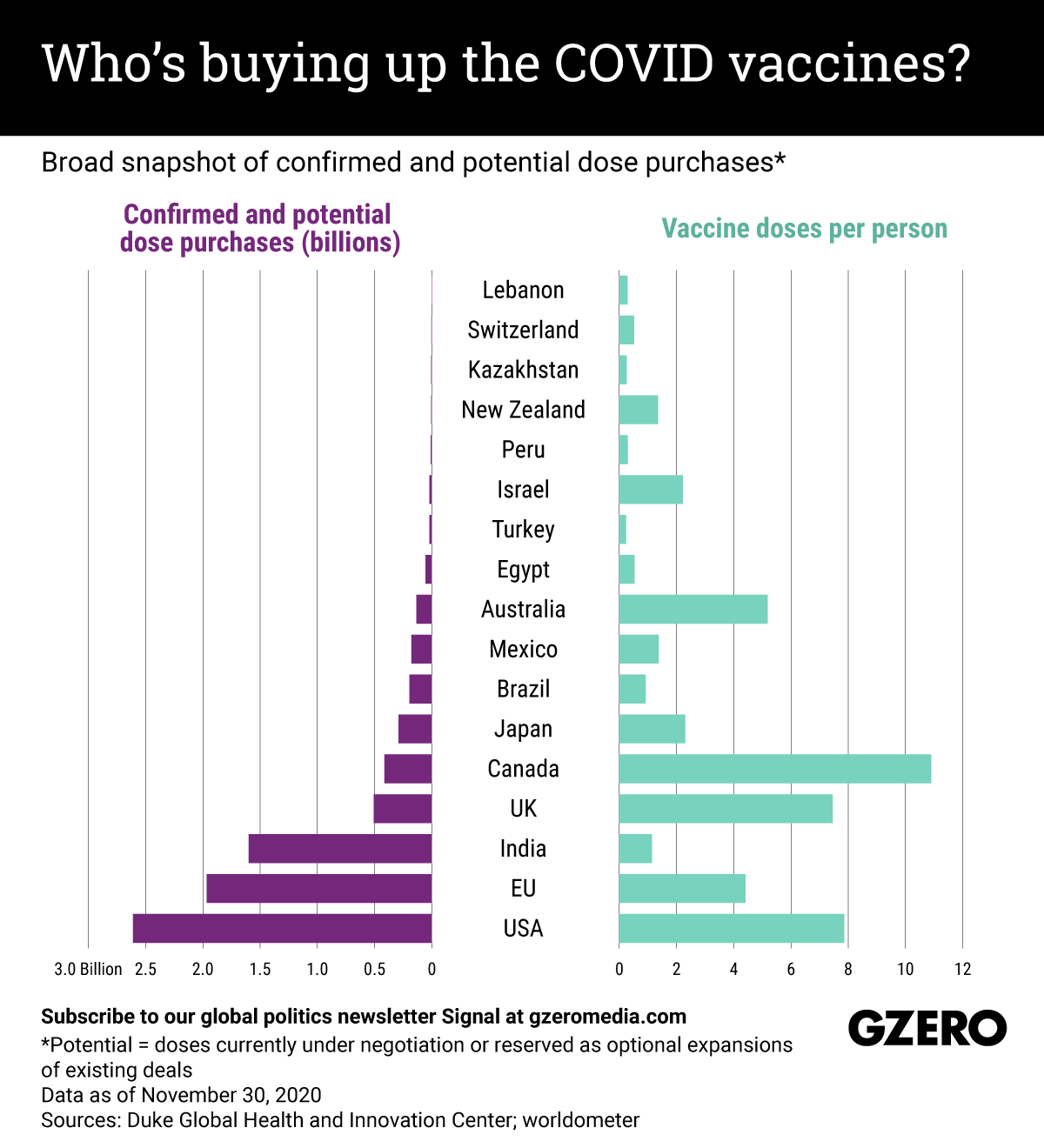The Graphic Truth: Who's buying up the COVID vaccines?
While recent news from Pfizer, Moderna and AstraZeneca on the efficacy of their respective COVID vaccines is encouraging, it has also given rise to bidding wars between wealthy countries trying to secure the largest supply of the new drugs for their citizens. Meanwhile, many governments in emerging market economies, where healthcare infrastructure is generally weaker, are worried they'll be kicked to the back of the line in the global distribution process. Indeed, history bears out their concerns: while a lifesaving HIV treatment hit shelves in the West in the mid-1990s, for example, it took years to become widely available in Africa, which saw some of the worst HIV outbreaks in the world. But here's the catch: even if wealthy countries manage to obtain large supplies of vaccines to immunize their populations, the interconnected nature of the global economy means that no one will really be out of the woods until we all are. Here's a snapshot of how many COVID vaccines select countries have already purchased.
